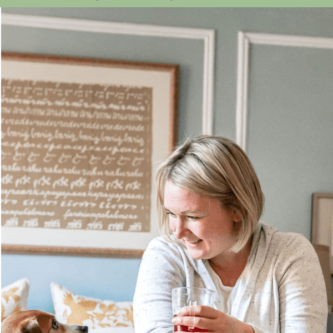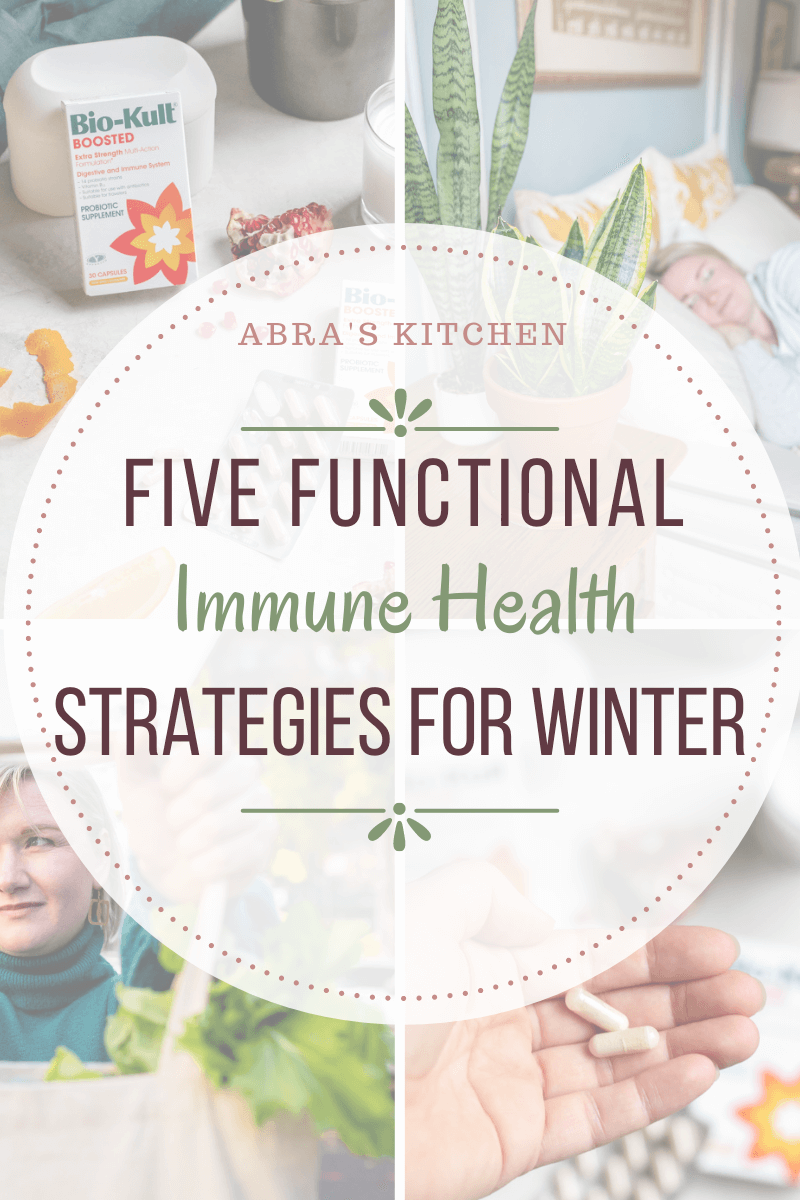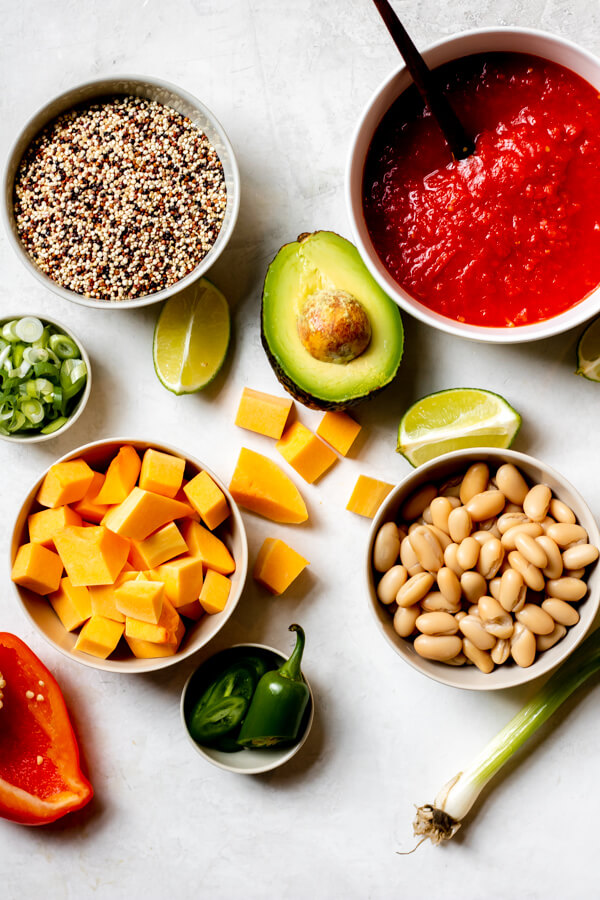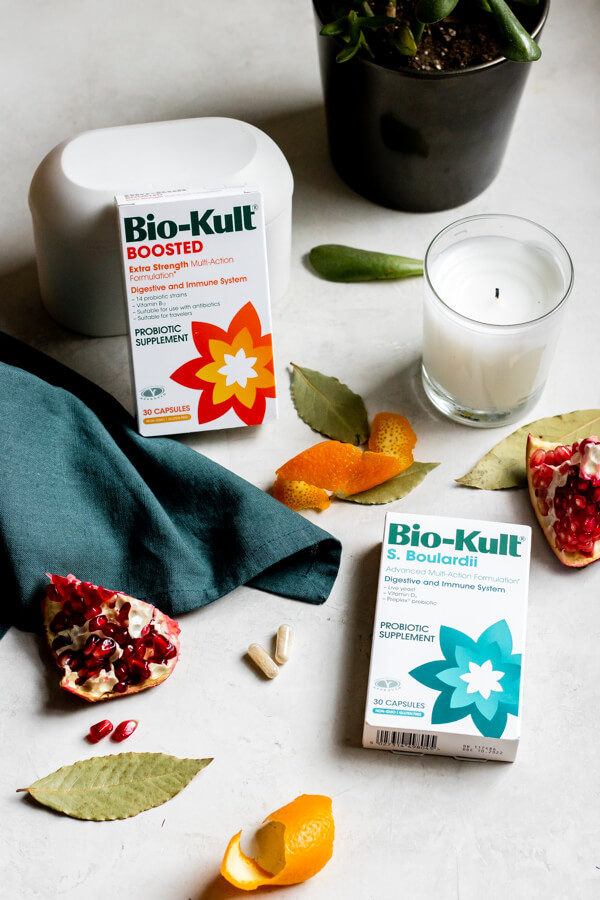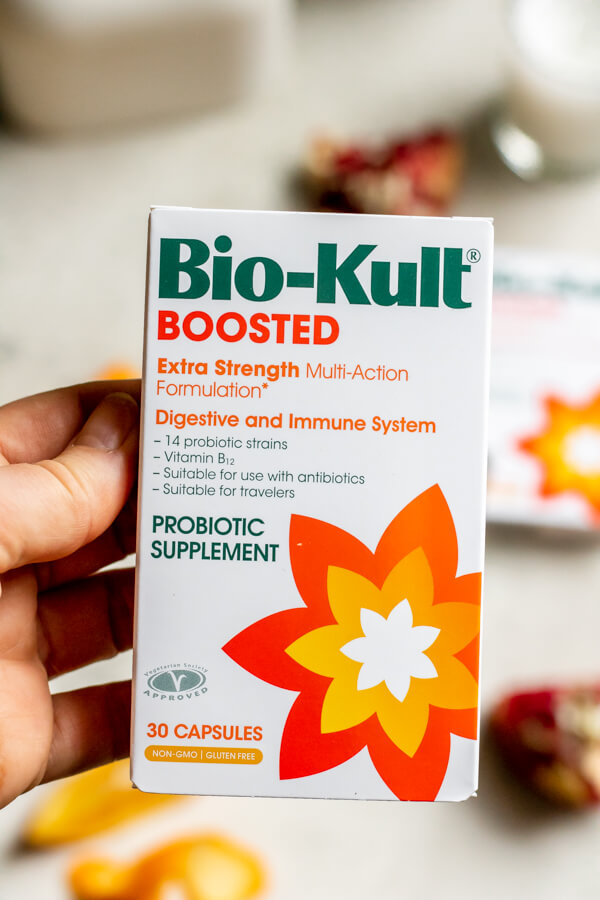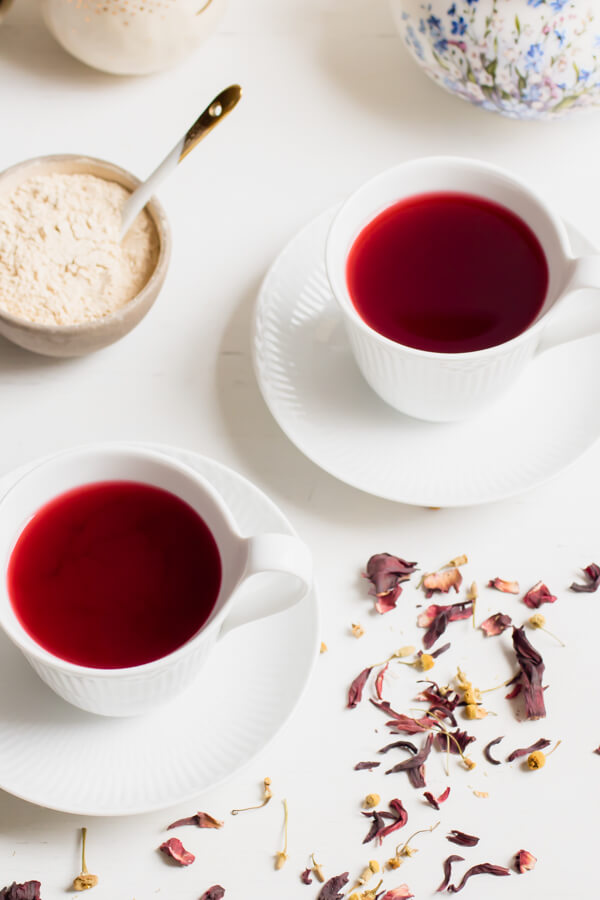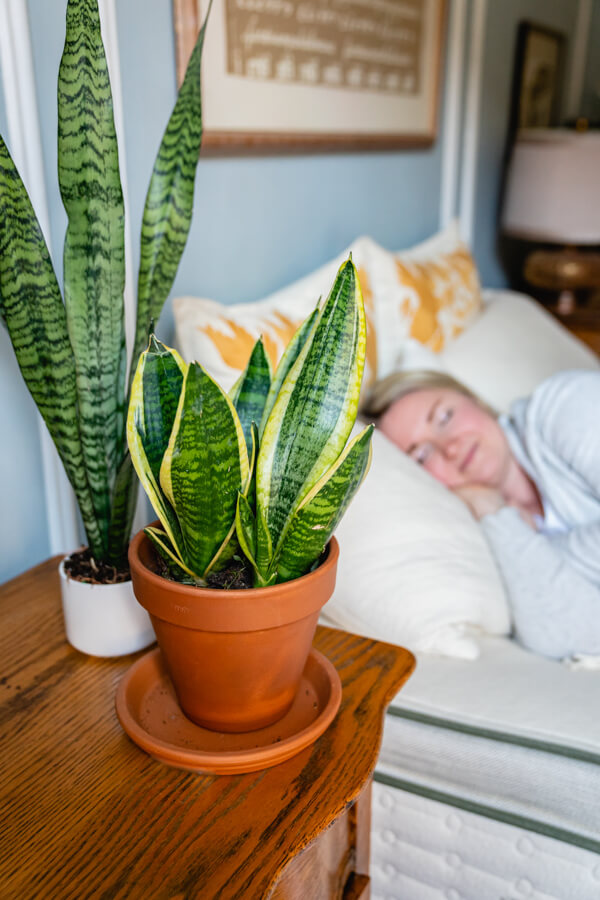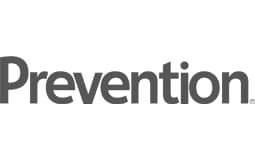In this post, you will learn the top five functional nutrition and lifestyle strategies you can use to support your immune system during the cold and flu season.
This post is written in partnership with Bio-Kult, thank you for supporting the brands that support Abra’s Kitchen. As always all thoughts, opinions, recipes, and musings are my own.
Your immune system is your body's personal army. Each cell, molecule, tissue, and organ in this army play a vital role in dealing with invading pathogens, viruses, and bacteria.
Immune health has never been a more important topic than it is right now. I have spent more time in the last 9 months guiding clients and teaching classes on immune health strategies than I have in my combined 15 years as a nutritionist.
Today I am sharing my top five functional strategies to support a resilient immune system. These are tips that you can take with you into the new year and through the peak of cold and flu season.
1. Get in the right nutrients – food is your friend!
I am frequently asked about supportive supplemental strategies for immune health. Specific nutrient needs will vary depending on the individual's unique constitution, but a supportive strategy for all is to begin by adding in nutrient-dense food.
The body’s cellular defense system is infinitely wise and relies on a multitude of different nutrients and their harmonious interaction. This is exactly why I am a proponent of a food first philosophy.
Focus on eating a diverse diet that includes plant products at every meal.
Some key nutrients that support a balanced defense system are Vitamin C, B12, A, D, and Zinc.
- Vitamin C – a potent antioxidant that supports antibody production and boosts white blood cell production while supporting cellular function of both the innate and adaptive immune system. Vitamin C also accumulates in phagocytic cells and can contribute to microbial killing. Food sources of vitamin C are bell peppers, kiwi fruit, citrus fruits, cantaloupe, and berries.
- Vitamin B12 – The B family of vitamins are involved in energy metabolism, DNA methylation, and regulating the immune response. Deficiency of Vitamin B12 has been shown to impact the activity of certain immune cells as Vitamin B12 acts as an immunomodulator for cellular immunity. Vitamin B12 is only found in animal products, thus individuals that exclude animal products from their diet are at the risk of developing a vitamin B12 deficiency. To support immunity daily, consider supplementing with Bio-Kult Boosted, a multi-strain live bacteria supplement that also contains vitamin B12.
- Zinc – an antioxidant that supports the development of white blood cells that help the body fight and respond to infection. Food sources of zinc include oysters (The highest food source! Two oysters provide the entire daily zinc recommendation for an adult), seeds, nuts, and mushrooms.
- Vitamin D – Also known as the sunshine vitamin, Vitamin D is a potent immune modulator. Vitamin D receptors are found throughout immune cells and vitamin D has been found to modulate both the innate and the adaptive immune response. The best way to get vitamin D is through safe exposure to natural sunlight and supplementation.
- Vitamin A – A fat-soluble vitamin that plays a critical role in immune function by supporting the production of secretory immunoglobulin A (IgA), which is a protective antibody. Vitamin A also protects epithelium and mucus integrity in the body. Food sources of vitamin A and provitamin A (beta-carotene) include sweet potato, carrots, winter squashes, leafy greens, and liver.
Remember you can’t out supplement a poor diet, if you add in supplements they should be just that, a “supplement”, to a high-quality diet!
2. Nourish your Gut!
More than 70% of the immune system resides in your gut. The diverse and vast ecosystem of our gut is made up of trillions of bacterial species, microbes, that influence the immune response.
The microbes within the gut influence inflammatory state, mucosal health, and interactions between multiple body systems. An imbalanced intestinal microbiota may have full system effects and contribute to a suppressed immune reaction.
Taking steps to ensure your digestive system is functioning properly is an essential step in maintaining a resilient immune system and total wellbeing.
Dietary interventions for a healthy gut include:
- Eating a diverse diet – Mix up the type of fruits and vegetables you buy at the market each week. Diversity is key!
- Limit consumption of processed and refined foods – Yes, I like to focus on all of the wonderful foods to add into your diet but it is important to remember that there are foods that can adversely impact the health of your gut.
- Add in fermented foods like sauerkraut, kimchi, yogurt, and kefir – Fermented foods contain live active cultures that can be supportive to gut health
- Consume adequate dietary fiber (25-35g/day) – Fiber feeds the healthy bacteria in our gut and helps them thrive!
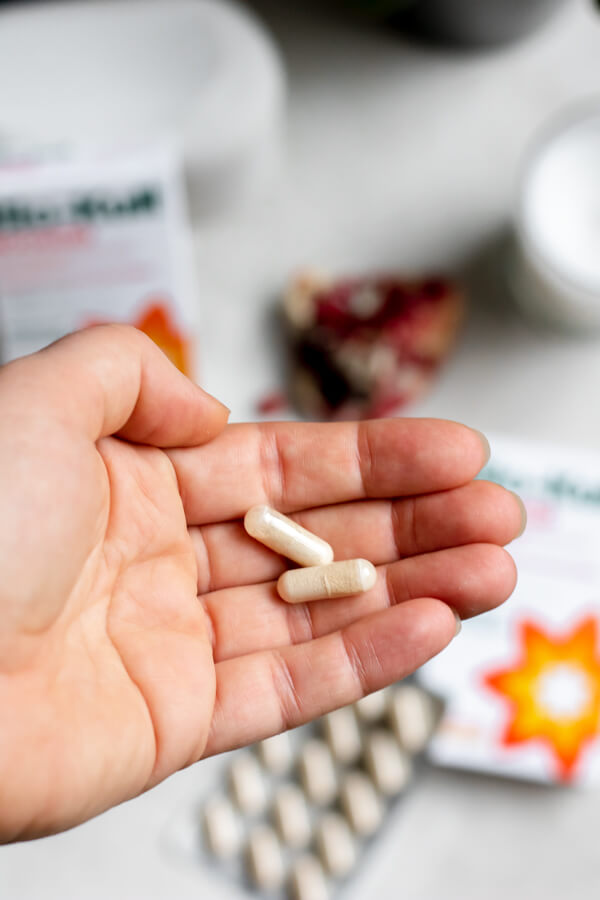
I personally find that taking a daily probiotic supplement is a supportive strategy for increased total wellbeing and a helpful tool for improved immune function.
Think of probiotics like little health soldiers that help to maintain order and harmony within your gut ecosystem.
Beneficial probiotic bacteria compete against unfriendly or pathogenic bacteria in the gut, helping to protect you from harmful pathogens.
Not all probiotics are created equal, and it may feel confusing knowing how to choose a probiotic supplement.
There are hundreds of species of beneficial bacteria, when you purchase a probiotic you may find a “multi-strain” formulation or a single strain formulation. The most common bacterial species used in probiotic supplements are Lactobacillus, Bifidobacterium, and Saccharomyces boulardii (technically a non-colonizing yeast, not a bacteria).
Among these strains there are specific species Lactobacillus, for instance, includes the individual species L. acidophilus, L. rhamnosus, and L. bulgaricus, to name a few.
When you are choosing a probiotic:
- Turn the product over to check what strains, not just species, are contained in the product.
Bio-Kult Boosted is a multi-strain formula containing 14 strains of probiotics plus the addition of B12.
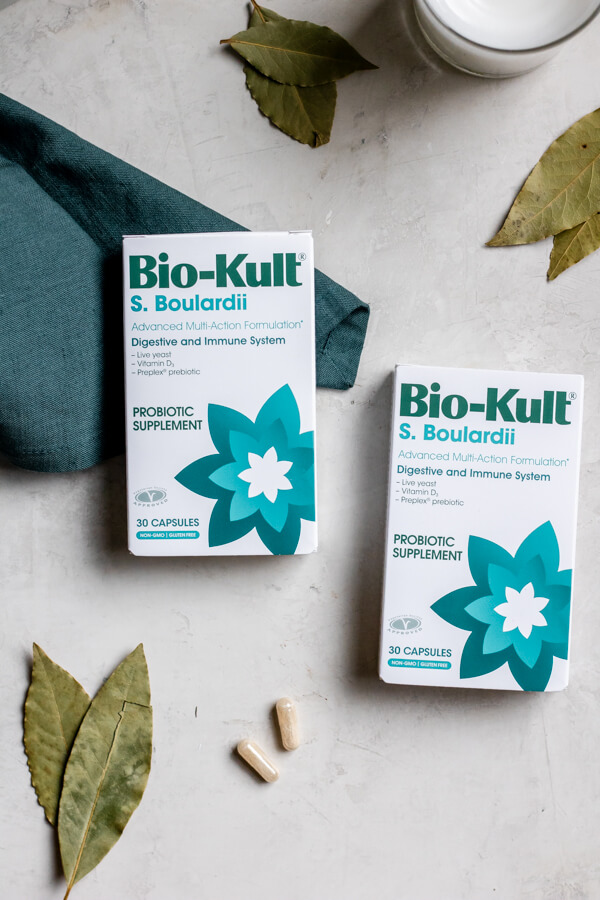
- Look for the billions – Ideally, a probiotic dose should be 5-15 billion CFUs or colony-forming units. If you are just starting out taking a probiotic start at a smaller dose and work your way up.
- Shelf-stable or Refrigerated? There are many well-formulated probiotics that are shelf-stable (Bio-Kult included), I personally find it far more convenient to take shelf-stable probiotics as I can easily travel with them.
Overall I would recommend switching up the strain formulation that you take every so often.
3. Manage stress
When chronically faced with stressful situations our body's ability to fight off infection is reduced. Plain and simple increased stress decreases immune function. I’m sure you are thinking, “Great! Well, what am I supposed to do about that?” Nearly 70% of Americans are experiencing increased stress as a result of the pandemic. I read that statistic and thought, only 70%?
I get it, these are challenging times. Here are some of my favorite supportive strategies to help manage stress:
- Mediation – While it is widely accepted that mindfulness meditation is a supportive tool for stress reduction, research has also shown that mediation can reduce inflammatory markers and support the immune system by boosting white blood cell count. I recommend using a free app like CALM to get started.
- 4-7-8 breathing technique – This relaxing breathing method involves breathing in for 4 seconds, holding breath for 7 seconds, and exhaling for 8 seconds. The 4-7-8 breathing technique is thought to help reduce nervousness, calm anxiety and support better sleep.
- Walking in nature – This is my personal favorite stress-reduction technique. Never underestimate how healing nature is. Close your computer, bundle up, and take a long walk outside.
4. Nourish your sleep cycle
Strong evidence accumulated through years of research indicates that sleep enhances immune defense. This shouldn’t come as too much of a surprise, because when you are sick what do you want to do? Sleep! Good quality sleep is associated with reduced inflammation, an increase in T helper cells, reduced risk of infection, and an overall better regulated immune response.
One study specifically looked at the effect of sleep on the night after experimental vaccinations against hepatitis A and found that during the deep sleep cycle there was a strong and persistent increase in the number of antigen-specific Th cells and antibody titers. Together these findings indicate a specific role of sleep in the formation of immunological memory.
Here are some supportive strategies to nourish your sleep cycle:
- Honor a consistent sleep schedule
- Have your own “turn-down” service at home. Dim lights, place water by your bedside, set yourself up for a good night's sleep.
- Avoid caffeine after 12pm. If you have trouble sleeping reassess your relationship to caffeine, begin by having caffeine cut off time.
- Move your body – see below
- Reduce exposure to artificial light, wear blue blocker glasses to support this.
5. Move your body
If you’ve been around here for a while you know my philosophy on movement, I don’t view it as exercise, I view it as joyful movement. I see movement as a nourishing way to give back to my body, not as a punishing exercise to change the size of my body.
When it comes to immune health and movement, we know that moderate movement has a profound effect on the immune system aiding in stress reduction, boosting white blood cells, and decreasing inflammation.
To make the switch from exercise to joyful movement embark on an expedition to find movement that you enjoy; hiking, swimming, cycling, dancing, something that makes you smile. Find ways to bring movement into your routine so it becomes a normal, natural part of your day.
As we head into the colder months and round the corner into a new year, still in the midst of a global pandemic, I feel very passionate about our personal call to embrace supportive health shifts to become stronger, and more resilient.
Thank you to Bio-Kult for supporting this post.

